

Prof. Strano has been selected by Thompson Reuters as one of 2014's most highly cited researchers. From Thompson Reuters:
Highly Cited Researchers 2014 represents some of world's leading scientific minds. Over three thousand researchers earned the distinction by writing the greatest numbers of reports officially designated by Essential Science Indicators℠ as Highly Cited Papers—ranking among the top 1% most cited for their subject field and year of publication, earning them the mark of exceptional impact.
The full list is at http://highlycited.com/
Nicole has an absolutely lovely and informative interview on her work up on the Economist
http://gelookahead.economist.com/video/age-brilliant-machines/
At this year's MRS conference Jingqing was awarded the prestigious MRS Gold award. She is one of only seven winners and is the only woman to win.
Photo of 2013 MRS Gold Award winners, Jingqing is second from the left in the front row.
Our recent work on plant nanobionics, published in Nature Materials, was featured on the MIT website and a variety of technical and scientific news organizations, including Scientific American Magazine and Podcast, Popular Mechanics, and Discovery News.
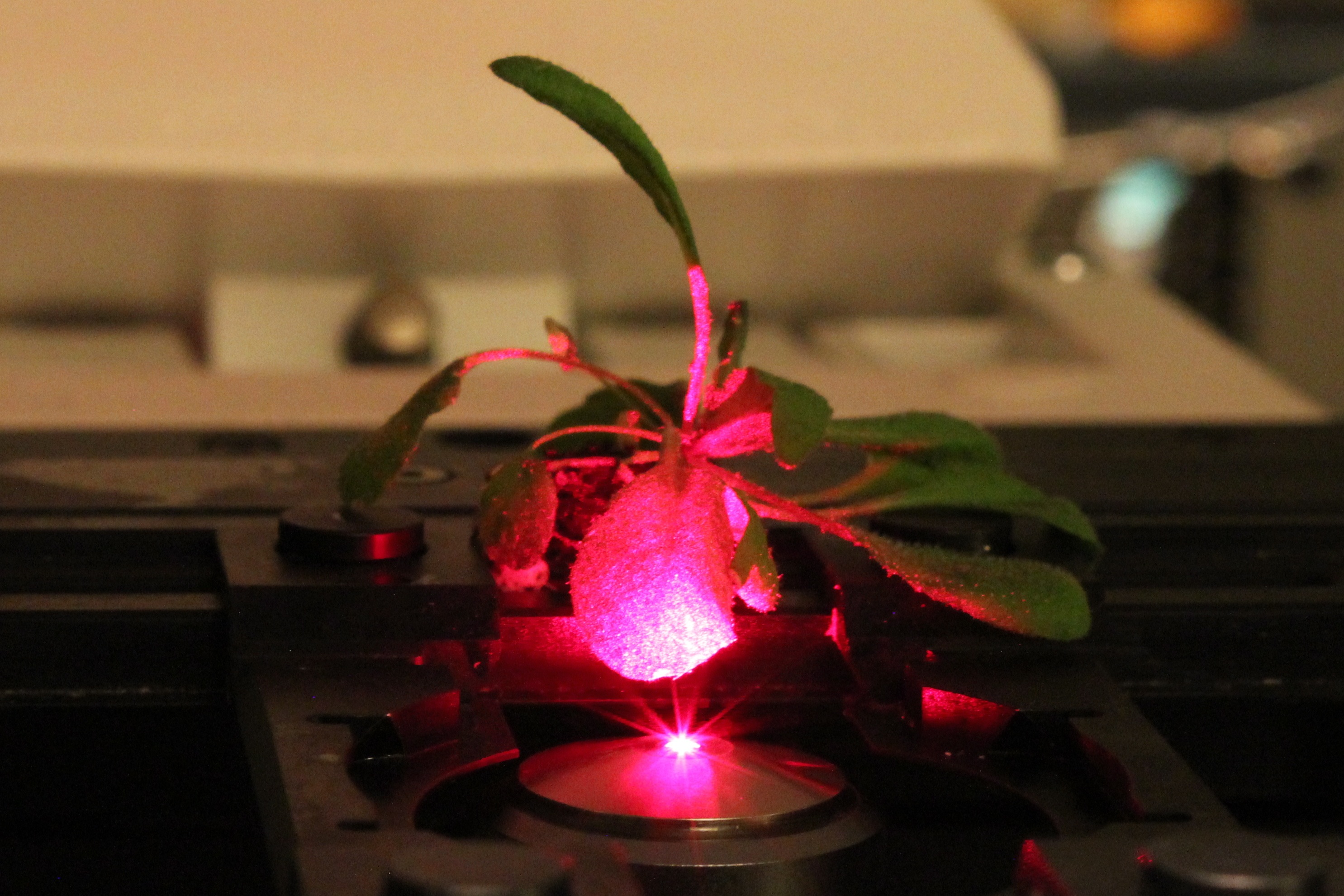
Photo: Juan Pablo Giraldo
Juan Pablo and Nicole represented SRG at this year's Cambridge Science Festival, bringing our active research to the community.

Postdoctoral Fellow Nicole Iverson explaining with paper models how carbon nanotubes are made and functionalized to become single particle sensors
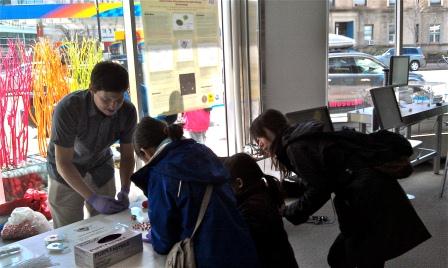
Postdoctoral Fellow Juan Pablo Giraldo shows with clay models the importance of defects in the lattice structure of nanoceria particles to act as free radical scavengers
Nicole, Tom, and Nigel's work on implantable Nitric Oxide sensors was featured in CNN's 10 emerging innovative technologies.
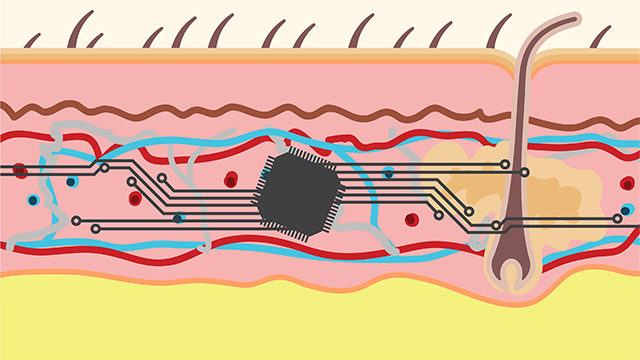
Sayalee was nominated by members of the MIT community for this honor based on her contributions to the MIT community and the world at large. She was selected from over 140 nominations and will attend a reception to be held at the Microsoft NERD Center. Congratulations!
nanotechweb.org has written up our work on in vivo detection of Nitric Oxide:
"Researchers at the Massachusetts Institute of Technology have created the first in vivo carbon nanotube sensors. The devices, which can either be intravenously injected into the bloodstream or implanted under the skin, could be used to detect molecules like nitric oxide in the body – in real time."

Markita, who built our total-internal-reflection (TIRF) microscope before even officially arriving as a post-doc in the group, was award an NSF post-doctoral fellowship covering three years of post-doctoral research.
We've filmed a demonstration of Nigel's portable SWNT array for multiplexed assaying using the fluorescence of carbon nanotubes in gel matrixs.
Nigel and his platforms are finalists in the invent.org 2013 collegiate inventors competition!
At the Boston Public Library last year, Prof. Strano took part in the '100 seconds of science' project to explain some of the work we and others in the field do.
First, thermopower waves
MIT News highlighted Nicole's work detecting NO in vivo and its potential impact.

The work has also been highlighted in several news outlets:
Carbon nanotube based implantable sensor paves way to long-term monitoring
Science World Report
New implantable sensor could one day monitor glucose levels
RedOrbit.com
Implantable sensor key to long-term monitoring
Laboratory Equipment
Professor Strano was invited to discuss the implications of our thermopower waves project for future technology
Markita has won a travel award from AIChE's Women's Initiative Committee.

Jingqing successfully defended her Ph.D. Thesis today, titled Molecular Recognition Using Nanotube-Adsorbed Polymer Complexes
Congratulations Jingqing!
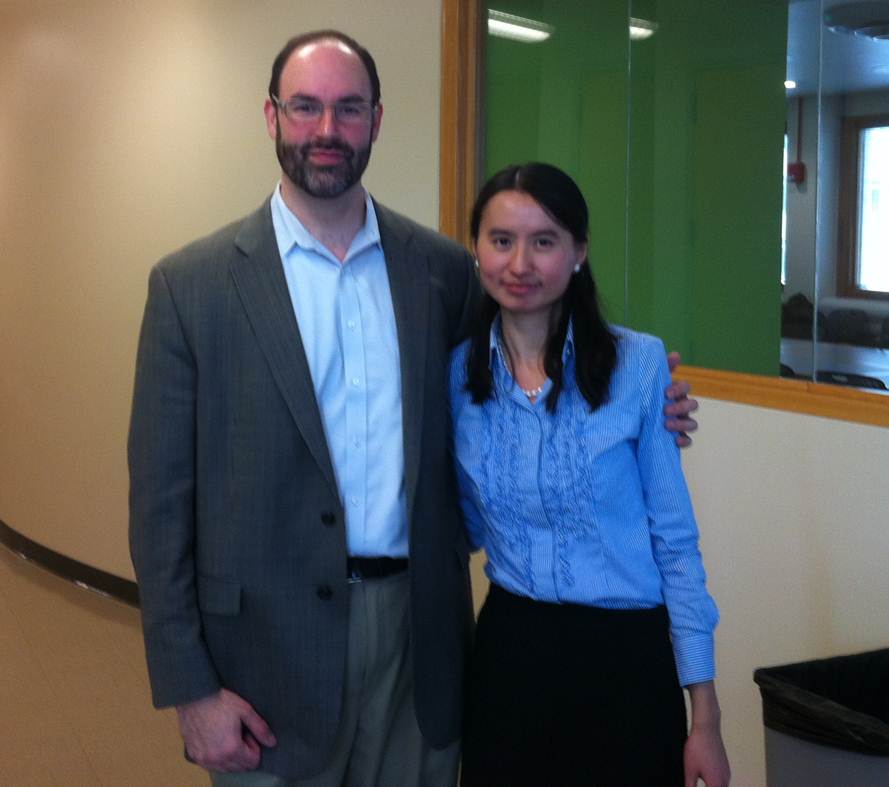
Zack, Wonjoon, and the nanopore team's work has been highlighted in MIT News

This semester the undergraduate chemical engineering project course 10.27 used for one of its project modules an adaptation of the thermopower work.
The team's efforts have been written up in MITei's periodical.
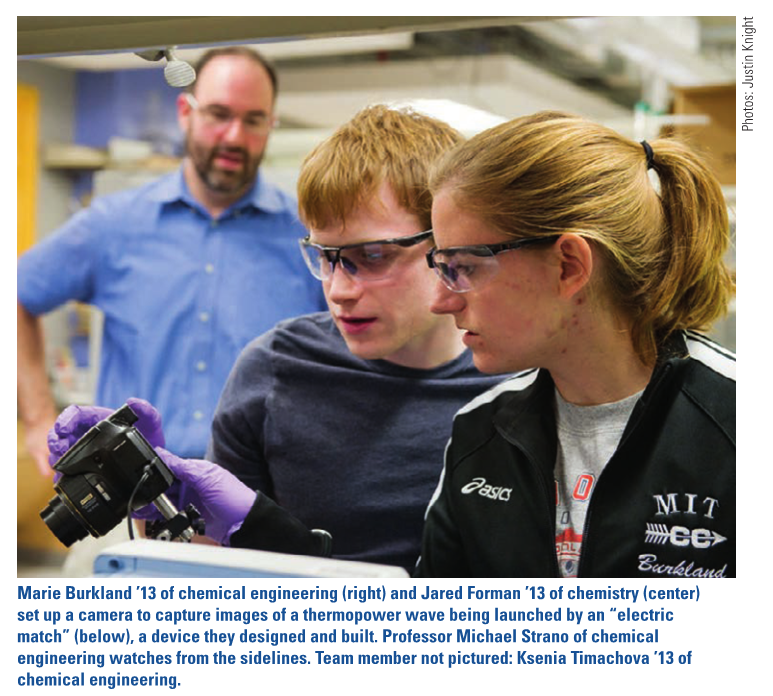
Alex Munzer, Alex Star, and Zachary Michael have written a perspective article on our biomarker detection work in ACS Nano.

Professor Strano received the Nanoscale Science and Engineering Forum (NSEF) Award at this year's AIChE Annual Meeting. The NSEF works to bring researchers across fields together under the common interest of studying and taking advantage of materials at the molecular scale.
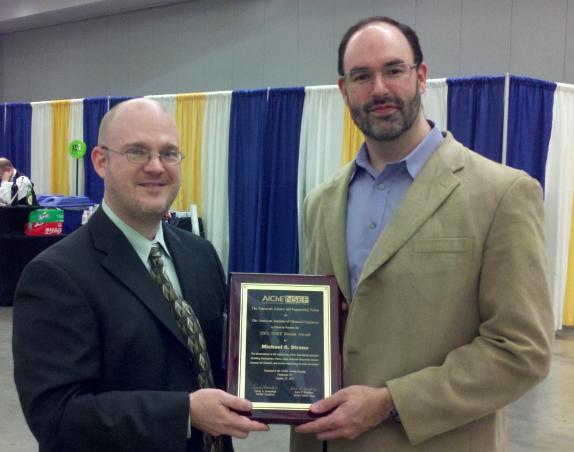
Nigel's work on SWNT detection of analyte binding in hydrogels has been highlighted in MIT news for the possibilities it opens for drug development.

Prof. Strano delivered a plenary lecture on "Charge Transfer in Graphene and Carbon Nanotube Chemistry" at the Brazil-Materials Research Society Annual Symposium
© Strano Research Group